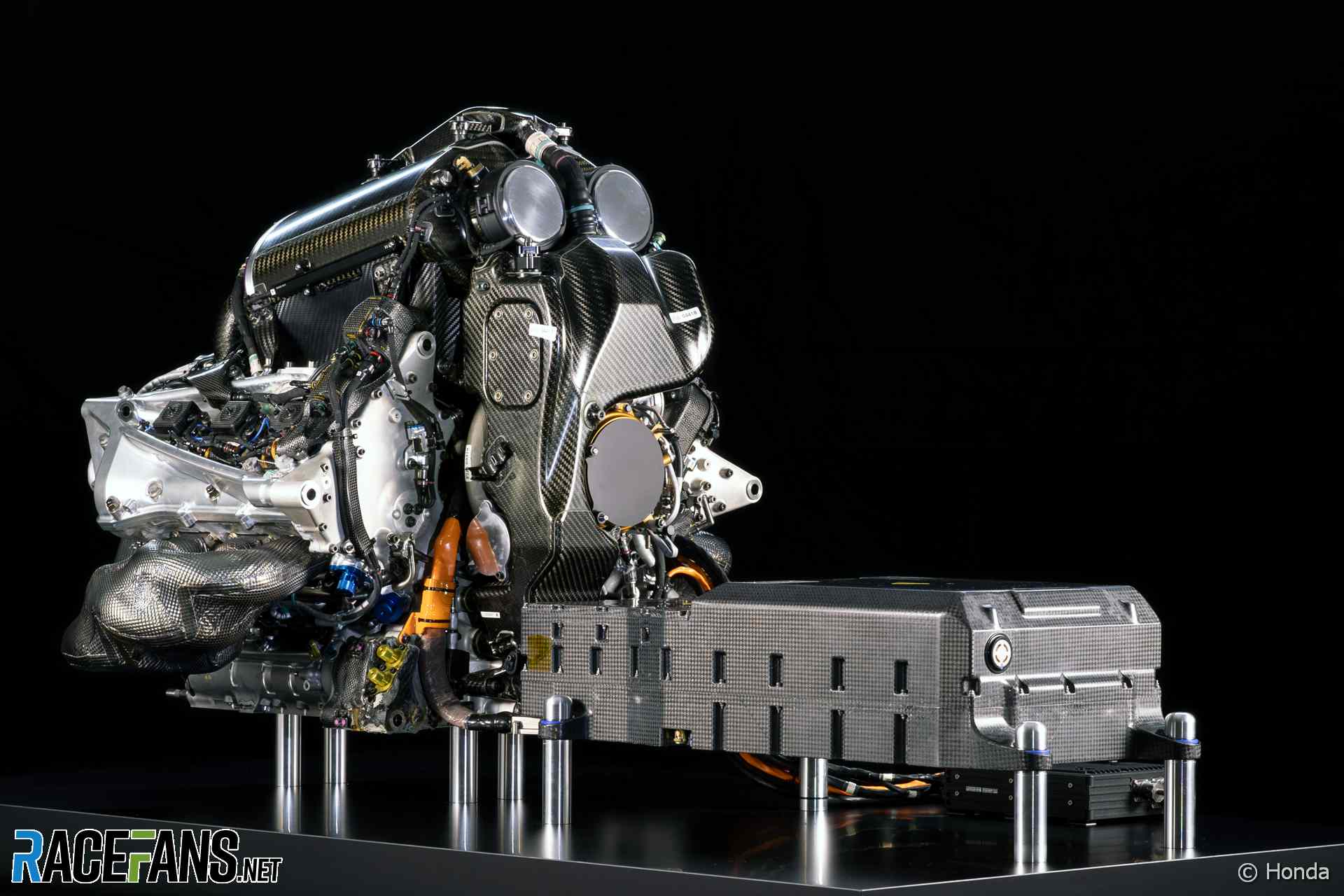Formula 1 power units could produce up to 1,100bhp (820kW) under the new rules which will arrive in 2026.
The FIA’s single-seater director Nikolas Tombazis said the next generation of power units will produce around 100bhp more than the current V6 hybrid turbos.
While F1 teams do not specify the exact output of their power units, they are generally regarded to have around 1,000bhp. Alpine describes its Renault power unit as having “more than 950bhp”.
The current power unit regulations were introduced in 2014 and the FIA froze development of the hybrids at the beginning of 2022. It also announced new power unit rules for 2026, under which the performance of the combustion engine will fall but the output of the electrical systems will increase to approximately the same level.
Tombazis said the resulting power outputs will be “a bit higher than where we are now.”
“It’s going to be approximately up by about 100 horsepower,” he told the official F1 channel.
The FIA confirmed the first details of its new chassis regulations for 2026 last week. Tombazis said the changes are needed because the new power units are not well suited to the current chassis.
Advert | Become a RaceFans supporter and
“As much as the maximum power has gone up, because a lot of it is electrical, that cannot last for so long,” he said. “Therefore, towards the end of the straights, we need to have cars with lower aerodynamic drag, which is what these technical regulations have done.
“The current generation cars have a bit too high drag and therefore would suffer some velocity drop-off towards the end of the straights on the current cars. We believe we’ve solved this problem for the new cars.”
Some teams have predicted the new cars will be drastically slower than the current machines. One team principal even predicted they will be little quicker than Formula 2 cars, which presently lap around 11-12 seconds off F1 times.
However Tombazis expects the cars will not be significantly slower than today. “The car we’ve got on our simulations today is a bit slower but not by much,” he explained. “Maybe a couple of seconds or that sort of thing.
“But we are continuing to engage with the teams a lot, and we will be also discussing various measures that maybe will be increasing performance by a bit.
“So in that I don’t expect it to be a night-and-day difference, I think it’s going to be in the ballpark. Some circuits a bit faster, some…
Click Here to Read the Full Original Article at RaceFans…

